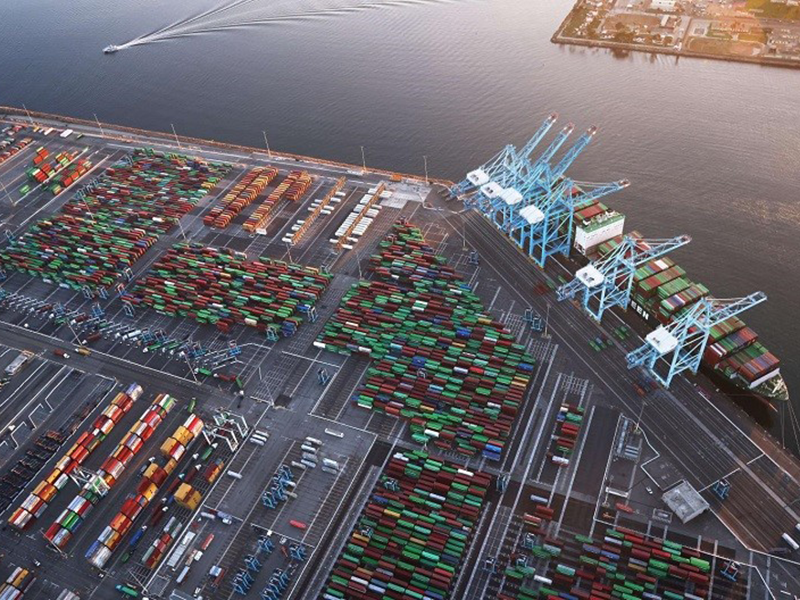

The comment was made by Minister Gina Raimondo in an interview with CNBC on November 1, following recent efforts by the White House to untangle supply chain bottlenecks that are weighing on the US economy and the whole world. bridge.
"Supply chains are global in scale. They're very complex, so we have to tackle the problem from all sides. I have to say we've seen a marked improvement in the port situation," he said. Ms. Raimondo said, while emphasizing the effectiveness of implementing the initiative to operate 24/7 at the two ports of Los Angeles and Long Beach in California, which the administration of President Joe Biden has deployed recently.
"The effect doesn't come overnight, but the shift to 24/7 operation has paid off. Some ports are charging fees per ... container for not too long. We focus on handling empty containers that are in progress. backlog and not being reused quickly," the US Commerce Secretary said.
Minister Raimondo affirmed that President Joe Biden's administration is doing "everything in its power" with the business community to overcome this difficulty.
"Basically, the private sector has to deal with this and we are working with them," Minister Raimondo said, adding: "We see progress."
Earlier at the G20 Summit over the weekend, President Biden called on leaders in this bloc to join hands to tackle global supply chain challenges. According to the White House statement on the G20 Summit, the US President, the European Union, and leaders from 14 other countries agreed to "further strengthen international cooperation to overcome disruptions" supply chain in the near future".
"Supply chain is a problem that most citizens don't think about, until it has a problem. During the pandemic, we see goods stagnant and circulation halted, from cars to electrical appliances. death, to footwear, furniture," Biden noted.
The US President said: "Ending the pandemic is the key to solving the bottleneck (supply chain - BTV). But we, together with our private sector partners, must act now to limit the situation of goods. stagnant as it is now".
Supply chains around the world are still being heavily impacted by the Covid-19 pandemic in the context of rising consumer demand, labor shortages, and stagnant production in countries. These factors have also pushed up freight costs and led to inflation.
Le Quan (baodautu.vn)
